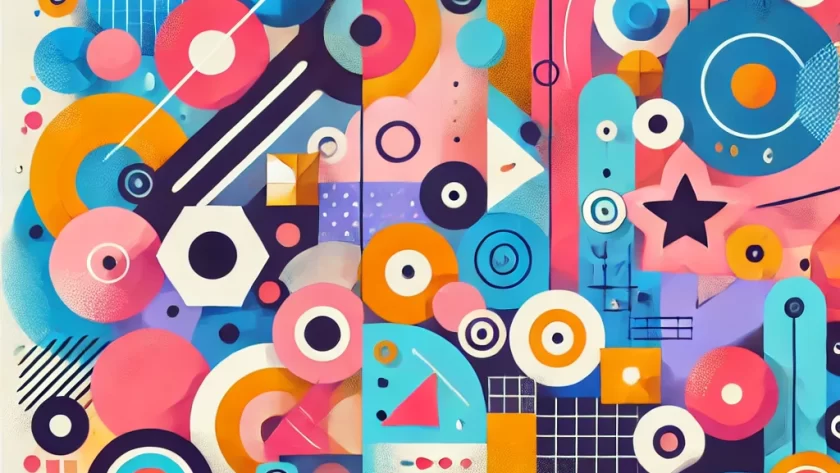PON PON PON [Pon Pon Pon]
きゃりーぱみゅぱみゅ [Kyary Pamyu Pamyu]
Words & Music : 中田ヤスタカ [NAKATA Yasutaka]
“Pon Pon Pon” was produced by Yasutaka Nakata, who achieved success as the producer for Perfume, and was released in 2011 as the lead track of きゃりーぱみゅぱみゅ / Kyary Pamyu Pamyu‘s debut EP, Moshi Moshi Harajuku (=Hello Harajuku).
Kyary Pamyu Pamyu’s career started as a “reader model”. A reader model, in my understanding, is closer to an amateur model. It has a positive aspect of being close to the magazine’s readers.
And a major element of her art, her unique fashion sense, condenses the rather individualistic and girly concept called “Harajuku style”. Harajuku wiki is a place name in Shibuya Ward, Tokyo, which has recently become crowded with tourists from overseas.

あの交差点で みんながもしスキップをして
ano kōsaten de minna ga moshi sukippu o shite
もしあの街の真ん中で 手をつないで空を見上げたら
moshi ano machi no mannaka de te o tsunaide sora o miagetara
- あの [ano] : that
- 交差点(こうさてん)[kōsaten] : intersection
- みんな(みんな)[minna] : everyone
- もし [moshi] : if
- スキップ(すきっぷ)[sukippu] : skip
- 街(まち)[machi] : city
- 真ん中(まんなか)[mannaka] : center
- 手を繋ぐ(てをつなぐ)[te o tsunagu] : hold hands
- 空(そら)[sora] : sky
- 見上げる(みあげる)[miageru] : look up
(translation) “If everyone skips at that intersection,
If we hold hands and look up at the sky in the middle of the city.”
The center of Shibuya Ward has a famous scramble crossing. For some foreigners, this scramble crossing is the image of Tokyo.

Incidentally, Harajuku google map is 1.5km (1 miles) from there and can be reached in about 15 to 20 minutes on foot.
もしもあの街のどこかで チャンスがつかみたいのなら
moshimo ano machi no dokoka de chansu ga tsukamitai no nara
まだ泣くのには早いよね ただ前に進むしかないわいやいや
mada naku no ni wa hayai yo ne tada mae ni susumu shika nai wa i ya i ya
- どこかで [dokoka de] : somewhere
- チャンス(ちゃんす)[chansu] : chance
- つかむ [tsukamu] : grab
- 泣く(なく)[naku] : cry
- 早い(はやい)[hayai] : early
- 前に(まえに)[mae ni] : forward
- 進む(すすむ)[susumu] : move forward
(translation) “If you want to grab a chance somewhere in that city,
It’s still too early to cry, right? You just have to move forward.”
If you want to move forward, there’s no time to cry.

When “はやい / hayai” uses this “早い” kanji, it means early, and when using “速い” kanji, it means quick.
The last “iya iya” probably doesn’t need to be considered for its meaning. It’s not “iya” = I don’t like or No, but rather playing with the sound “i-wa i-ya-i-ya.” Similar to how “Cha-la Head Cha-la” has nonsensical “a i ya i ya i ya i”.
PONPON 出して しまえばいいの
pon pon dashite shimaeba ī no
ぜんぜん しないの つまらないでしょ
zenzen shinai no tsumaranai desho
- 出す(だす)[dasu] : let out
- いい(いい)[ī] : good
- ぜんぜん(ぜんぜん)[zenzen] : not at all
- する(する)[suru] : do
- つまらない(つまらない)[tsumaranai] : boring
(translation) “Just let it out,
It’s boring not to do it at all, right?”
The onomatopoeia “ぽんぽん / pon pon” is a problem. It reminds me of “Odoru Pompokorin.” It has a cute impression. Please check out “Odoru Ponpokorin.”
Here are three meanings of “pon pon” that might fit this context:
1. An onomatopoeia representing the sound of drums as is.
If we say, “Ponpon ‘oto’ (= sound) o dasu (=let out)”, it means making a sound. In this case, the lyrics have no particular meaning.
2. A word that describes things happening one after another.
If we say, “Ponpon kyoku (= song) o dasu (=let out)”, it can describe Yasutaka Nakata releasing new songs one after another. Given the context of wanting to grab a chance and succeed, this meaning fits the lyrics.
3. Describing something done vigorously.
If we say, “Ponpon oshiri (= hip) o dasu (=let out)”, it can describe a sexy model revealing parts of her body without hesitation. However, it doesn’t fit the image of Kyary Pamyu Pamyu. The latter part, “It’s boring not to do it at all, right?” seems to fit this meaning though.
In the end, we don’t know what it let out here. There is no right answer. These are the possible meanings of “pon pon.” Considering the second meaning fits best.
ヘッドフォンかけて リズムに乗せて
heddofon kakete rizumu ni nosete
WAYWAY空けて あたしの道を
way way akete atashi no michi o
- ヘッドフォン(へっどふぉん)[heddofon] : headphones
- リズム(りずむ)[rizumu] : rhythm
- 乗る(のる)[noru] : ride
- 空ける(あける)[akeru] : empty, make way
- あたし(あたし)[atashi] : I (female)
- 道(みち)[michi] : way
(translation) “Put on your headphones, ride the rhythm,
Make way, my way.”
“わたし / watashi” is the most formal and standard first-person pronoun. In spoken language, it is a first-person pronoun used by women. A more casual female first-person pronoun is “あたし / atashi”.
PONPON 進む 色々なこと
pon pon susumu iroirona koto
どんどん キテる? あなたのキモチ
dondon kiteru? anata no kimochi
POIPOI 捨てる悪い子はだれ?
poi poi suteru warui ko wa dare?
そうそう いいコ ああ You Make Me Happy
sōsō ī ko ā You Make Me Happy
- 進む(すすむ)[susumu] : move forward
- 色々な(いろいろな)[iroirona] : various
- こと [koto] : things
- どんどん [dondon] : rapidly
- 来る(くる)[kuru] : come
- あなた(あなた)[anata] : you
- 気持ち(きもち)[kimochi] : feeling
- 悪い(わるい)[warui] : bad
- 子(こ)[ko] : child
- 誰(だれ)[dare] : who
- そう [sō] : yes
- いい [ī] : good
(translation) “Move forward rapidly with various things.
Are your feelings coming rapidly?
Who is the bad child throwing things away?
Yes, the good child. Ah, You Make Me Happy.”
“どんどん / don don” is the same as the second meaning of “ぽんぽん / Pon Pon” previously explained. It’s a frequently used onomatopoeia.
“ぽいぽい / poi poi” is an onomatopoeia for throwing things away.
“そうそう / sō sō” is just repeating “yes.”
In this context, using katakana where kanji or hiragana would normally be used might not have a significant meaning. It feels very sensory.
Every Day PON
Every Time is PON
メリーゴーランド のりたいの
merīgorando noritai no
Every Day PON
Every Time is PON
たぶん そんなんじゃ ダメでしょ
tabun sonnan ja dame desho
- メリーゴーランド(めりーごーらんど)[merīgorando] : merry-go-round
- だめ [dame] : no good
(translation) “I want to ride the merry-go-round.
Maybe that’s not good, right?”
This part is completely incomprehensible. I don’t think it has any meaning.
The following lyrics are repetitions, so I’ll omit them.
There’s no need to give “うぇい / wei” a particular meaning besides “way,” but if I had to, it might be recognized as a meaningless word used by some foolish youths to liven up the atmosphere. It seems to have originated from the English “Yey.!” There’s no need to think about its meaning too much.
The lyrics are very sensory and nonsensical, but they are interesting because they can be deeply interpreted.
As of 2024, the music video for this song has been viewed 200 million times on YouTube. The colorful and unique fashion-filled video is worth watching. You might understand the meaning of “pon pon” by watching the video.
Thanks for reading! Feel free to comment if you have any feedback or questions.
Follow me on X.



